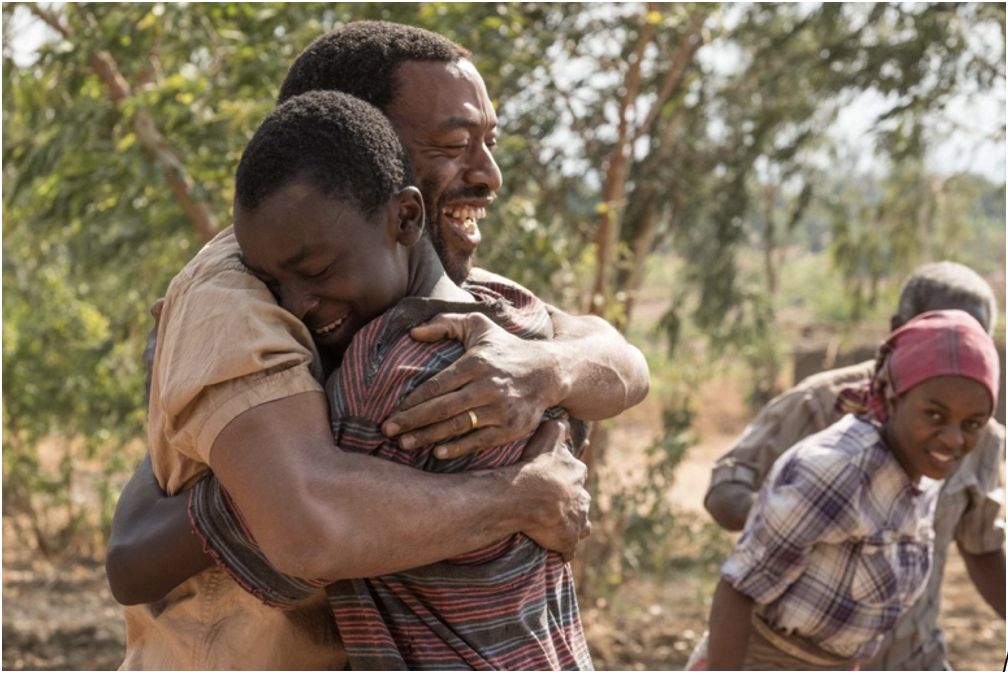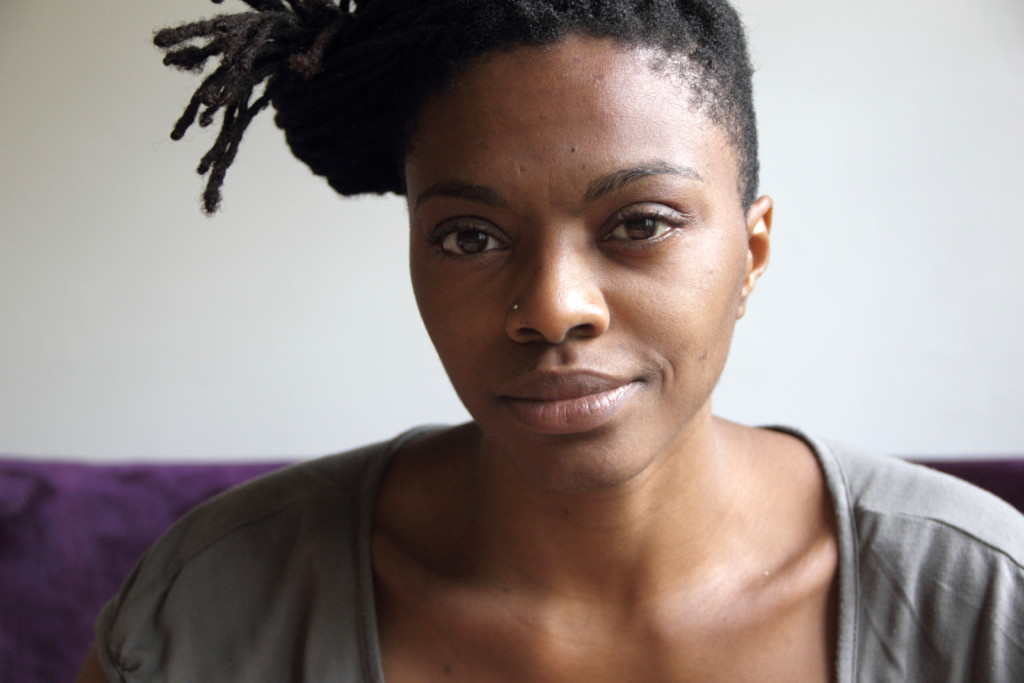Welcome to our Forward Prizes 2023 ‘How I Did It’ series. This year we asked the poets shortlisted for the Forward Prize for Best Single Poem (Performed) to write about the inspiration behind their poem. Here’s Zena Edwards on what inspired her to write ‘Human : This Embodied Knowledge’.
This piece has always wanted to be written. It is a culmination of many life experiences, and it was written very intuitively in movements of the heart. For me, the heart space is a space of freedom. The most human space, where our quietest voice whispers what it wants. A poem gives physical voice to a desire for lucid freedom, so that the imagined and the physical can meet in the real world.
This poem holds a couple of secrets. Now, not secrets. 1) I love the Planet Earth and 2) I would dare to say that we, us humans, are ‘her Opus Magnus’. I say this in the stark light of a human induced precipitation of devastating climate change, when many express how much better off the Earth would be without us. This is the foundational bed of the poem, which is a celebration of humanity. It is also about the echoes of the legacy of colonial rule in Kenya, and the human stories about the most out-of-the-way rural existences that are directly impacted by climate change.
Each time I read this poem, it feels like a dare, but its inspiration comes from the humble beginnings of the story of William Kwamkumba.
At 12 years old, Kwamkumba saved his village from the grip of starvation by constructing a windmill made from rubbish and discarded materials salvaged from the local waste dump. His passion for engineering and his determination united, and he became ‘The Boy Who Harnesses the Wind’.
I watched a beautiful rendition of the book of his story, and the actor, Chiwetel Ejiofor, produced, directed and acted in a beautiful film rendition which moved me to put pen to paper and write ‘Human: This Embodied Knowledge’.
I watched William’s TED Talks and began to realise that the context of his life in the desiccated lands of Kenya was that of historical colonial and climate oppression, the legacy of which is limiting beliefs of what African ex-colonial subjects can achieve. I needed to write a poem that unpacked my conflicting thoughts on resilience that should not have to exist and my awe at what is possible when that resilience is called to action.
To complete the windmill, William needed the cog wheel of his father’s bicycle, his father’s only mode of transport to travel the long exhausting distance to work, so he could feed his family and pay for William to go to school. The political climate in Kenya was changing for the worst, and his father couldn’t pay for William to attend any more. Those who live in rural areas, rarely could make the ‘quota in queues to brain institutes’:
With ambition to win the accolades, squeezed
in the tightest fists of a myopic elite
Who equate war with peace.
However, his determination compelled him to continue to study, leaning in through classroom windows when school was in session when it was forbidden. His curiosity for engineering drove him to find the parts to build a battery from electrical scraps and discarded wires. All he needed was the bicycle wheel that spun the windmills sails, captured the wind, and drove the alternating charge to the battery.
William’s father refused to give him the bicycle wheel, the crucial component to his project, thus exposing the generational gap of the presupposed tradition of Elder’s wisdom over youthful innovation. Also, the colonial learning of his father (i.e. ‘jails for the imagination of the children’, the next generation) prevented William from completing the windmill that would be the lifeline for his village.
His father’s doubt and dismissal was palpably in conflict with his love for his son, who had the vision, ‘the comforting fat of faith’ in himself, ‘lining his stomach’. After begging his father, William chose to take the wheel anyway, so water from a distant well could be irrigated to his village’s thirsty and failing crops. The belief in what he was constructing was obstructed but he kept the faith.
I am a soldier who marches
On a stomach full of simple bread
A stomach lined with the comforting fat of faith
I am authority on everyday resistance
I know progress
I know how to make.
When the wind changed and the windmill worked, the village was jubilant and the muscular potency and lucidity of human innovation under those circumstances evoked a level of respect that I had to capture in words.

My affiliation to the Kwamkumba story resonates through the entire poem. I recognise my privilege growing up in the West, however, I can align with the waking every morning to get the work done as a freelance artist with bills. I align because my skin and my gender has met the limiting beliefs of many over the years. At times, it has left me with immense self-doubt, and I have been complicit in my own oppression. This is why ‘Human: This Embodied Knowledge’ begins with an opening sentence that pushes back negative internal dialogue of limiting self-belief.
Lone, separate, but knowing myself connected
To 7.8 billion parts of humanity
Multiply this by 100 billion neurons of the average brain
What can I not know? What can I not do?
My fascination with the science of the body and its abilities to be self-sustained runs throughout the piece. I speak of the muscle bound and rigid intellect, into the imagination.
I leave the frontal lobe of intellect
Step into a new Eden
This replenished Garden.
I mention ‘war scars on the heart being turned into gold’, and I think about the cluster of cells formed at the embryonic beginning of the heart’s creation called the sinoatrial node. They are self-agitating, the natural Pacemaker of the heart and they keep the heart pumping. In this piece I allow myself to be in complete awe and wonder at the anatomy, neurology, and physiology of the human body.
As a climate an environmentally aware piece, I consider the human capacity to imagine and to innovate under extreme pressure. I believe no-one could have imagined the world we are living in now; had no idea the immense amount of pressure human induced climate change would bring about for those living with the worst consequences of fossil fuel emissions. However, conversations about climate change are difficult to relate to on a grassroot level in the streets of the UK, not when people are simply trying to make ends meet.
Yet I am compelled to speak about some of the billion parts of humanity who are:
everyone’s neighbour,
the boy in low-slung tracksuit
whose eyes are chained to the ground
And the man whose cheeks crack
With the drought of smiles in his wallet”
or
“the one who carries the deceased to the morgue
And the Doula who champions life into the world
The piece is, however, still a dare, because I recognise that the chips in my laptop and mobile phone were ‘gouged violently by the poorest hands from the earth’, and that ‘I am poverty’s complex complicity.’
The poem is a journey of three movements (maybe four. I cannot decide!).
The first 2 minutes set the glocal context of where the human body must exist, and the wider societal pressures that perpetuate insecurities that we are a burdensome species to the planet earth. I endeavour to find compassion for the human. ‘The beauty of this frail existence / wrapped in the weight of flesh’, implies this a move away from the question of ‘why are we here’ to ‘how are we here’.
I use lists and internal rhyme to emphasize the grassroots and ecological interdependence we have on each other and on the earth. Lists in performance poetry are risky because the mundanity of their content can alienate the audience or lose their attention.
The 3rd movement is a list of ‘I Am’ affirmations, ‘ruminations about us’, the human. They endeavour to elevate the work of the lower classes to that of ‘salt of the earth’. The same Earth the claims them as Her ‘Philosopher’s stone / Her Opus Magus / Us, who can turn war scars on the heart into Gold’.
Performing this poem always surprises me. It is the type of poem, when reading, means something different after an intense life experience. It is a poem to ground and remind me that what is human is unique about the experience. The singer and performer in me is in awe of how the physical act of storytelling has the capability to alter the state of presence of the human organism. I work to stack words in measured configurations that resonate as a musical score.
The human voice, the first instrument, is most haunting and enchanting, and the flesh of the human body will resonate and alter neurologically and physiologically when we hit the right notes. Soundwaves in music can cleanse or jar. The cadence and phrasing of poetry can be just as harmonious or discordant. We want both effects to resonate with intentional effect.
I dare to identify the human body with the cellular makeup of the Earth in assonance and alliteration.
I fall i to Her magic
Feel the milk of Her finest silk silt on my skin”.
I melt into mineral – iron fleck, porcelain clay
And saltpetre, the spark-catcher,
The seed vessel of the flame.”
I wanted to leave the reader with a sense of what I would call ‘a second take’. Like a moment to think about how the situation before you can play out. The adage ‘Life is not a rehearsal’ is true.
William Kwamkumba had one shot and he took a risk falling out of favour with his father when he took his precious bike apart, driven by his innovative humanity, the dexterity of his imagination and ability to make. All in the desire to progress, in the name of survival, thriving and future-thinking.
And while we are in transition in the first quarter of the 21st century, we might allow the embodiment of creation to be a practice of awe and wonder at how the Earth is the ‘very make up of us’:
And make something, anything
to counter destruction
anything to keep life going.

For 28 years, Zena has been a professional writer and performance poet, singer, creative educator and project developer after graduating from Middlesex University. She studied storytelling and performance at The London International School for Performing Arts and has toured internationally with her own one-person shows and monologues.
As a curator and producer of independent live and online events, Zena facilitates spectrum of masterclasses, from creative and writing poetry to artistic legacy building for longevity in the arts and literature industry. She has delivered masterclasses for Arvon retreats, Apples and Snakes Poetry organisation, The Clore Leadership Foundation The Roundhouse and Poets Built It Online Poetry Community.
Her poetic advocacy work includes climate and environmental awareness, sustainability, well being and regeneration. Her most recent initiative is called Nature Persists which is an experimental poetics & embodiment practice space for gentle but determined writing for those living in big cities. It encourages reconnection to the quiet power of nature to flex the muscle of sustainable well-being in the urban environment.
Her writing and performance pedagogy is rooted in identifying the connection to the Earth, the body, human resilience and the imagination which greatly informs her mentorship practice. Zena mentors across all generations, cultural and economic backgrounds as she believes in artist agency depends on well-being using creativity.
As a multidisciplinary collaborator, Zena has worked with The Last Poets, Hugh Masekela, Baaba Maal, choreographer Akram Khan (Xenos), and Visual Artist – Theaster Gates (Soul Manufacturing Company) at the Whitechapel Gallery.
Add your Reply
You must be logged in to post a comment.